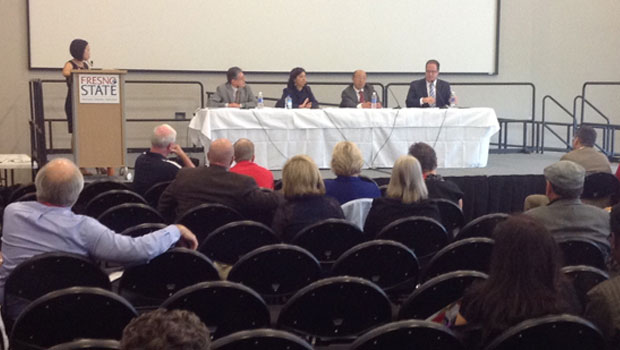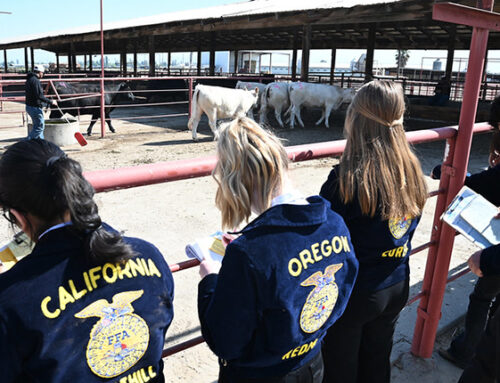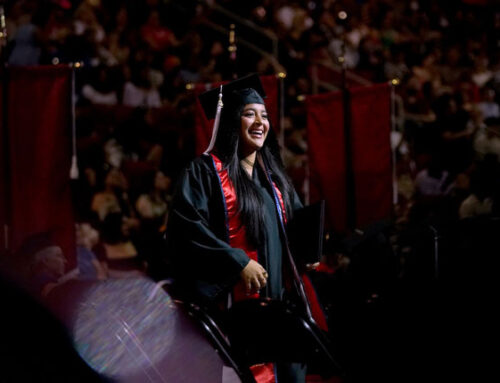Four distinguished educators looked into the “Future of Education” during a panel discussion on May 8 that was one of the Investiture week activities at Fresno State.
President Joseph I. Castro assembled the panel to discuss ideas and issues that the university should address as it works to improve teaching and learning of students in the Valley.
Castro’s Investiture ceremony was Saturday, May 10. Another activity during the week leading up to the ceremony was presentation of the preliminary report by the President’s Commission on the Future of Agriculture.
The Future of Education panelists and their comments were:
Otto Benavides, who discussed using technology in the classroom, was professor in the Kremen School of Education and Human Development/ He retired in 2012 and continued his campus affiliation through the Faculty Early Retirement Program.
With input from colleagues in Austria, Ireland and Hungary, Benavides had the following suggestions:
- We need personalized learning and tracking of progress
- Increase use of student portfolios
- Set high-level goals
- Implement mobile learning
- Foster and guide student research
- Provide challenges with real-world applications
- Connect students with community resources
- Provide for performance-based advancement
“Kids are advanced in their use of technology,” Benavides said. “They are not technologically afraid. We need to prepare the teachers so they can use technology appropriately.”
Dr. Noemi Donoso, who leads local and national education initiatives for Roll Global LLC, a Los Angeles-based company that has invested millions of dollars to dramatically improve educational outcomes for students in the Central Valley and across the country.
Looking at high school graduation rates, she said they are improving but the college enrollment rate is only 10 percent to 12 percent in the Valley.
Working with families who are employed by Roll Global companies in the Valley, she has seen an improved college-going rate in children of employees. The company offers renewable college scholarships worth a total of $20,000-$30,000 to every employee’s child who has a 2.5 grade point average, but less than half of the children are eligible.
The initiative also takes students and parents to colleges throughout California to expose them to higher education institutions, but many choose campuses in the Valley to stay near home.
Dr. Kenji Hakuta, a professor of education at Stanford University and co-chair of the Common Core State Standards National Initiative. An experimental psycholinguist, he is best known for his work in the areas of bilingualism and the acquisition of English in immigrant students.
He emphasized that personalized learning is the lens we should be looking through in educating children.
“Where do English language learners fit in? Most school districts in the Central Valley have a majority English language population. How do you educate the majority of our kids? Our school systems are still trying to catch up with that reality.
Michael Hanson, Fresno Unified School District as superintendent since 2005, is responsible for leading California’s fourth largest school district and overseeing the academic performance of 72,000 students at 106 schools, as well as managing a $1 billion budget.
Hanson said a visit to view the educational system in Finland has caused him to believe we must be “rededicated to basics … we’ve got to give
He said 87 percent of Fresno Unified students are “poor, English learning or foster youth.”
“We have to profile our kids positively. The more information we can get into our system about what they are involved in, how grades are, we can see blips and directly reach our students.”




